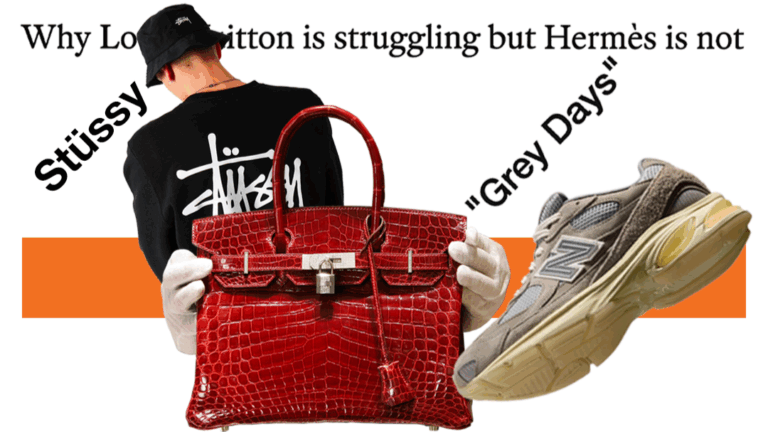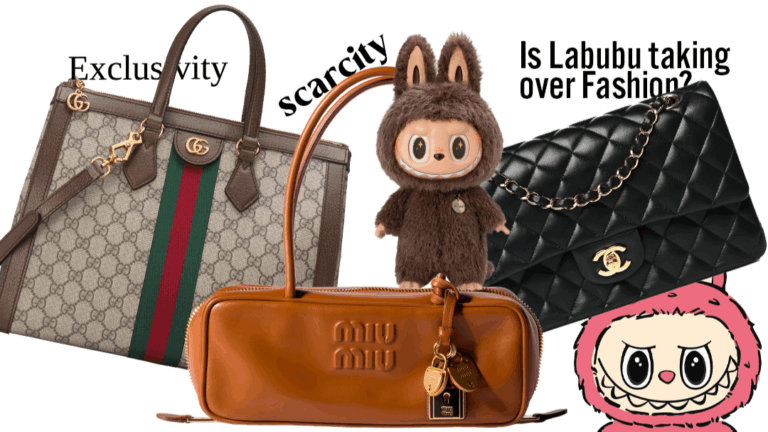Growing up Essence magazines were a fixture in my house. Watching my mother flip through every monthly issue of Essence—with pages filled with beauty, brilliance, and belonging. For many of us, Essence wasn’t just a brand. It was synonymous with our culture. A safe space in a world that often isn’t. This year’s Essence Festival of Culture made something painfully clear: when a brand drifts too far from its core audience, it doesn’t just lose ticket sales—it sparks a brand crisis that threatens trust and loyalty.
2025’s Essence Fest was marred by low attendance, delayed performances, expensive “VIP” lounges, and worse—an unmistakable vibe shift. A festival once rooted in community and cultural connection now feels curated, commercialized, and increasingly disconnected. This isn’t just an organizational issue. It’s an identity crisis based on cultural disconnect. In many ways, Essence has become a textbook example of what happens when brand values, audience expectations, and cultural context fall out of sync.

From Movement to Marketing
Let’s back up.
Essence was founded in 1968 and the first issue hit the shelves in 1970 as a lifestyle magazine centering Black women—and by extension the Black experience: our stories, our beauty, our power. By the 1990s, Essence Fest had become a cultural mecca. Part music festival, part revival, part think tank, it was our homecoming—a multi-generational reunion filled with sermons, soul, and social justice.
Then came corporate shifts. In 2018, Essence Communications was sold to Liberian-born entrepreneur Richelieu Dennis, founder of Shea Moisture. While this move brought the brand back under Black ownership—a major win at the time—it also introduced new dynamics that have since caused ripples in the community. One growing opinion: the leadership, though well-intentioned, may be culturally unaligned with the audience that built Essence.
Festival planners hosted a competitive cook-off, dubbed the “Battle of Jollof vs. Jambalaya,” which featured a live rice cook-off and a basketball game between teams representing West African jollof and Louisiana’s iconic jambalaya. Sponsored by AT&T, it was framed as a celebration of cultural connection across the diaspora. On paper, that sounds like a beautiful idea. But in execution, it felt like a misread of the moment.
As one attendee put it, “It feels like jollof replaced jambalaya—and nobody told us why.”
Instead of honoring both dishes—and by extension, both cultures—as equal parts of a global Black story, the framing gave the perception of competition rather than celebration.

Culture Can’t Be Curated From the Top Down
The festival’s 2025 rollout saw glaring missteps that went far beyond poor logistics. Black-owned businesses in New Orleans, who for years have participated unofficially in the Essence weekend experience, were hit with cease-and-desist letters. Most notably, Baldwin & Co., a local Black-owned bookstore, was threatened for hosting a book signing during the event. The backlash was immediate and fierce—how does a brand that claims to uplift Black voices move to silence a Black bookstore?
Culture is nuanced. It’s not a commodity to trademark or a marketing asset to control. New Orleans is not just a backdrop for vibes—it is the vibe. And when you ignore that, the people and the historical good will built up over decades, you send a loud message:
“This space is no longer yours.”
A Shift Without a Conversation
Let’s name something harder: the quiet tensions between diasporic identities.
As Essence Fest leadership becomes more pan-African in tone—embracing West African fashion, food, and language—some Black American attendees have felt left behind and blindsided. Not because we reject African culture, but because the shift came without conversation or care. There’s a difference between celebrating the diaspora and overwriting a legacy.
My take is our cultures do not need to be antagonistic. I agree with a point made by Caroline Wanga, current Essence CEO and former Target exec (and someone I met and shared a fireside chat during my time as an entrepreneur at Target HQ for their retail accelerator):
“There is room for all of us.”
I would add, the room isn’t made by assuming alignment. It’s made by dialogue and collaboration. I will discuss later how they can turn this into a brand moment.

Disconnection Is Costly
Ticket sales were down. Vendors opted out. Target was there—now drawing the side-eye from some attendees due to the ongoing boycotts and the ever changing political environment. Even longstanding traditions like the Superlounges were transformed into premium ticketed experiences. Attendees were left asking:
“Who is this for?”
When Stephanie Mills and Lauryn Hill took the stage hours late—due not to artist delays but to Essence’s scheduling mismanagement—it felt like more than just poor planning. It felt symbolic. The audience showed up on time. The culture showed up on time.
The organizers didn’t.

BTS: Who’s Creating the Experience?
While on the subject of performances and production, BTS (behind the scenes) since 2012, Essence Fest has partnered with The Solomon Group, a New Orleans-based event production firm. For context, production companies (often external) execute the technical build—set construction, staging, fabrication, logistics. While experienced in large-scale events, the company is not Black-owned—and from a glance, its team lacks the diversity you’d expect from a festival rooted in Black culture.
While Solomon Group is seasoned in this arena, it is not Black-owned—and based on publicly available team listings, it appears to lack the cultural representation you might expect from a festival rooted in Black identity. Of the 27 staffers listed, only three are Black, and none serve in senior leadership roles. This absence of representation behind the scenes contributes to the growing sense of cultural disconnection.
While it’s true that there are few large-scale Black-owned production firms, Essence could be intentional by taking steps to invest in and partner with mid-sized or emerging Black-owned vendors, or create collaborative models to help them scale.
To be fair, Essence Fest does work with Black experiential producers and creatives (often in-house or agency-side), who shape the overall vision and cultural flow of the experience. But the gap between concept and execution matters. When those responsible for building the experience don’t reflect the community it’s meant to honor, the result can feel hollow—even if the intentions were good.
A branding axiom worth recalling:
“Brands are defined by assumptions and expectations.”
Ultimately, the assumption and expectation that Essence is “for us, by us” shouldn’t just be implied. It should be reflected—visibly, intentionally, and transparently—at every level of the experience.

The missing $2 Million
Another layer to this year’s fallout? The financial ripple effect.
Following the steep drop in attendance at the 2025 Essence Festival, Louisiana’s economic return from the event took a noticeable hit. Hotel occupancy rates slipped from 91% last year to 86% this year—fewer visitors, less spending, and a quieter city during what’s typically one of New Orleans’ biggest weekends.
Historically, Essence has brought in upwards of $340 million annually for the local economy. But this year, that figure is expected to shrink. State officials also confirmed a $2 million cut in funding, compounding concerns about the festival’s long-term sustainability in New Orleans.
With the current contract set to expire after 2026, local leaders—including Council President Helena Moreno (LINK)—have begun speaking publicly about the importance of keeping Essence Fest in New Orleans, the only city that’s ever hosted it, and the only one that truly feels like home.
When the Brand Experience Breaks Trust
A brand is a relationship. And when the experience no longer reflects the identity or expectations of the audience, trust erodes. Essence is no longer “by us, for us” if it dismisses the very people who have held it up for decades. You can’t build community through exclusion. You can’t trademark tradition.
And here’s the real lesson: when the brand experience feels antagonistic, the brand becomes unsafe. And Essence was once one of the few spaces where Black women—and by extension, Black communities—felt deeply safe, seen, and celebrated.
“Now we will unlock the cultural “Elephant” in the room”

The Branding Blindspot
At the heart of Essence Fest’s current identity crisis lies a branding blindspot—one that reveals what happens when growth outpaces grounding.
To be clear, the vision behind connecting Essence with global Blackness—particularly the energy of the African diaspora—makes strategic sense. Nigeria, for example, is projected to become the world’s third most populous country by 2050.
Across the continent, Africa is home to the youngest and fastest-growing consumer population on the planet. From Afrobeat to fashion, Lagos to London, the global Black cultural influence is booming. It’s no surprise that Essence’s leadership—particularly Richelieu Dennis and Caroline Wanga—would aim to align with that emerging wave.
But here’s the problem: you can’t evolve a brand built on the foundation of the Black American experience without honoring and protecting that legacy. That’s where people are saying Essence missed the mark.
The pivot although inclusive to the African diaspora—felt abrupt to the core diehard fans of the brand. It didn’t feel expansive—it felt like displacement.
For longtime supporters, especially Black American women who’ve held Essence down for generations, the shift to a more pan-African tone landed as a replacement, not a celebration. And that’s a dangerous line to cross.
When brands stretch themselves too far to attract new audiences without reaffirming their connection to the original one, they risk losing more than customers—they risk losing trust.

The Diaspora Disconnect: A Much Deeper Conversation
The fallout from Essence Fest isn’t just about one weekend. It’s about a much larger, longer, and more emotional conversation between Black Americans and the broader African diaspora—one that’s often gone unspoken, unresolved, and unreconciled.
For centuries, our communities have been divided by colonization, propaganda, language, and geography. We’ve inherited suspicion, stereotype, and separation. And because so much of our pain has been shaped by systems that profit from our division, even well-meaning efforts to reconnect can feel harmful when they’re rushed, one-sided, or poorly communicated.
But that doesn’t mean unity isn’t possible.
If anything, this cultural clash at Essence Fest could be a catalyst for healing—an invitation to do the hard, beautiful work of listening, unlearning, and understanding. Because what’s at stake isn’t just a festival. It’s a vision for what Black global solidarity can look like.
At a time when Black immigrants and citizens alike are facing intensifying political pressures in America, we need spaces that hold both our histories and our futures. We need cultural homes that allow for nuance, that celebrate difference without creating distance.
As Caroline Wanga said, “There’s room for everyone”
I agree with Caroline Wanga’s intention—to show up as someone rooted in the full spectrum of Black culture, not just one region of it. Her stated goal isn’t to support African culture at the expense of Black American culture, but to expand the frame to include the entire diaspora.
Still, I’d add: this room of inclusion and community must be built with intention, communication, and care—over time.
Think about the cultural figures who transcend borders and represent the fullness of Blackness, no matter their geographic roots: Nelson Mandela, Michael Jordan, Muhammad Ali, Pelé, Bob Marley, Sade, Maya Angelou. Their legacies remind us that shared identity can stretch across oceans—when it’s grounded in respect.
“We don’t need to compete. We need to connect.”
And if Essence is willing to lead that connection with humility and honesty, it just might reclaim what it’s lost.

Takeaways: How to Reclaim the Essence of Essence
If Essence wants to turn this around, it needs more than apology posts and Instagram comments (LINK). It needs a re-centering of mission, a recommitment to values, and a reckoning with its core audience. Here are some guideposts:
- Honor the history of the brand and the Local Culture: New Orleans is not a canvas for corporate expression. It’s the cradle of our living culture. Include local vendors, musicians, and artists—not as tokens, but as partners.
- Communicate Cultural Shifts: If there’s a desire to broaden the celebration to the full African diaspora, say that. Build bridges, don’t bulldoze history.
- Fix the Experience: From ticket pricing to show delays, logistics matter. When people feel disrespected or dismissed, it breaks the brand.
- Listen With Intent: Invite community forums, not just branded panels. Ask the audience what they need and build from there. Build Brand feedback loops.
- Consider a Global Model: Create an experience in both Nigeria AND New Orleans and differentiate both by celebrating local culture. Or a rotating Essence Fest that honors the host city or country’s unique cultural roots could be a powerful unifier—if executed with respect and care.
- Better alignment from brand sponsors: Partnerships and Sponsors need to be vetted for their commitment to the brand, culture and community.
Highlighting this one
Create an experience: A rotating Essence Fest that honors the roots of the brand while celebrating the host city or country’s unique cultural roots could be a powerful unifier—if executed with respect and care.

A Catalyst for Healing
The Black experience is not monolithic. Safe spaces that acknowledge complexity and allow mutual respect are essential. The Essence Fest controversy should spark deeper conversations about ownership, authenticity, and responsibility in storytelling. When culture is curated without consent, what’s left isn’t Essence—it’s a brand crisis.
Final Word
The question isn’t just, “Has Essence lost its essence?” The real question: can it reclaim it while navigating this brand crisis?
Only time—and accountability—will tell. As for me, I’m rooting for the culture.









